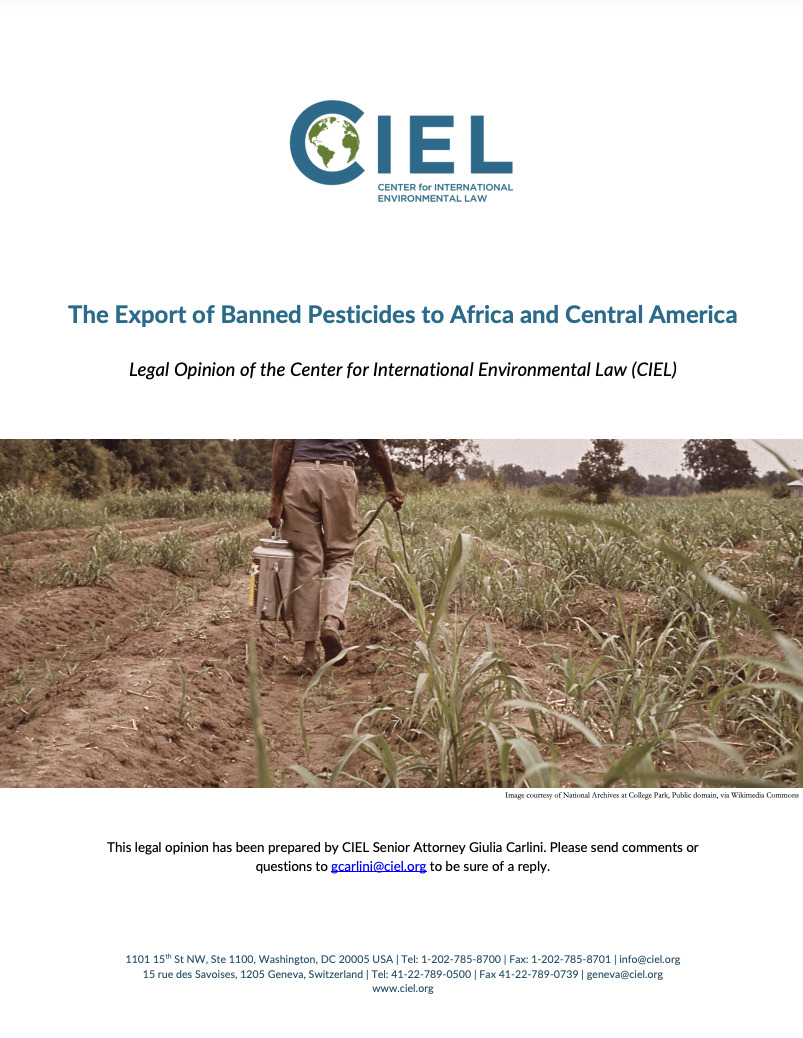
Decades of research have resulted in the banning and severe restriction of some highly hazardous pesticides including aldrin, dieldrin, and dichloro-diphenyl-trichloroethane (DDT) under international law. But there is no international, legally-binding agreement to phase out these highly hazardous pesticides more generally. In response, many States have adopted domestic measures to address the problem. However, many of these countries continue to allow industry to manufacture and export these same banned and unapproved substances to other parts of the world.
The double standard allows high-income countries to produce and export these unwanted substances both for export and profit. At the same time, the importing countries, many of which have less stringent protective regulations and technical capacity to handle hazardous substances, are facing toxic exposure among their populations and in their environment.
The Export of Banned Pesticides to Africa and Central America: Legal Opinion explores the legality of exports of banned or unapproved pesticides in States that are Party to the Basel Convention to Parties of two regional instruments — the Bamako Convention in Africa and the Central American Agreement. In doing so, it argues that Parties to the Basel Convention are in breach of their international obligations under the Convention, customary law, and human rights law.
Read the executive summary in Spanish and in French.
Published on September 26th, 2022
